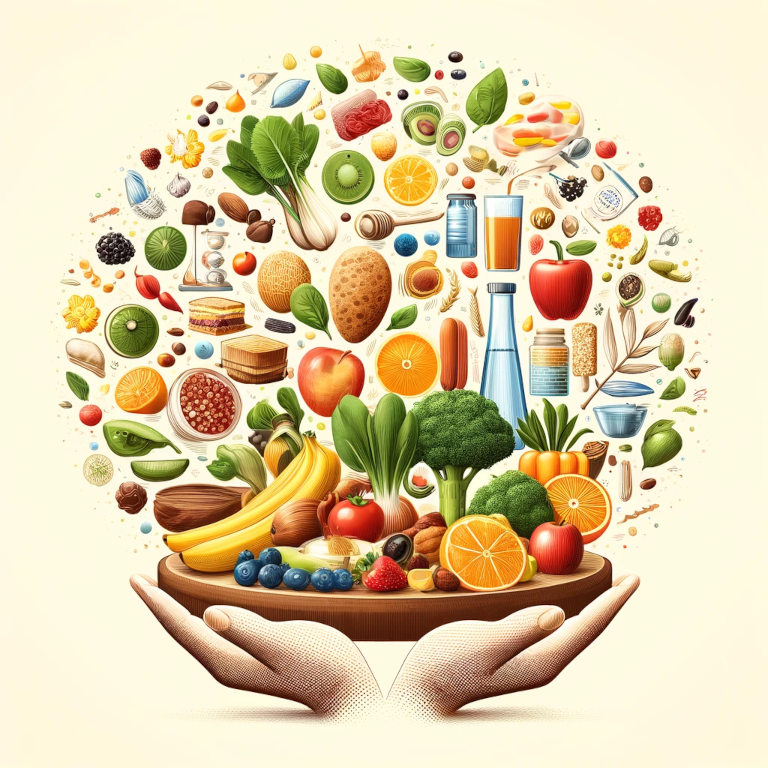In the quest for a healthier life, understanding the pivotal role of nutrition and diet is essential. As an expert in health and wellness, this guide delves into the core principles of nutritional science and practical dieting strategies to empower readers to make informed choices that enhance their overall well-being.
The Foundation of Nutrition
Nutrition is the science of how food affects the body and involves the breakdown of food and its assimilation by the body. Good nutrition is crucial not just for survival, but for a healthy life quality. It involves getting a balanced diet that includes the vitamins, minerals, and nutrients necessary to keep the body functioning efficiently.
Key Components of a Healthy Diet
- Macronutrients: These are nutrients that provide calories or energy. Nutrients are substances needed for growth, metabolism, and other body functions. The three macronutrients are:
- Carbohydrates: Essential for energy, should come from complex sources like whole grains and vegetables.
- Proteins: Crucial for muscle repair and growth, sources include lean meats, legumes, and dairy.
- Fats: Vital for neurological health and energy, focus on healthy fats found in avocados, nuts, and seeds.
- Micronutrients: Vitamins and minerals that are essential for health, though needed in smaller quantities.
- Vitamins: Organic compounds critical for body processes such as Vitamin D for bone health and Vitamin C for immune function.
- Minerals: Elements like iron for blood, calcium for bones, and zinc for metabolism.
- Water: Often overlooked, water is crucial for every system in the body and is essential for hydration and digestive health.
Personalizing Your Diet
Understanding that there is no “one size fits all” when it comes to diet is crucial. Individual nutritional needs can vary based on age, gender, lifestyle, physical activity levels, and medical history. Here are some steps to tailor your diet:
- Consult with a Dietitian: Get professional advice to create a meal plan that fits your specific health needs.
- Listen to Your Body: Pay attention to how different foods affect your energy levels, mood, and general health.
- Adjust as You Go: Be willing to modify your diet as your health needs change over time.
Trending Diets and Their Impact
While fad diets come and go, understanding their impact is vital:
- Keto: High in fats and low in carbs, useful for quick weight loss but may be challenging to maintain long-term.
- Paleo: Focuses on eating whole foods that a caveman would have access to, which helps in eliminating processed foods.
- Vegan: Eliminates all animal products and is rich in vegetables, grains, and legumes. It’s great for reducing the risk of chronic diseases but requires careful planning to meet all nutritional needs.
Overcoming Common Nutritional Challenges
Many people face dietary challenges such as:
- Eating Out: Choose restaurants with healthy options and control portions by asking for half to be boxed up immediately.
- Busy Schedules: Prepare meals in advance to ensure you eat healthy on the go.
- Budget Constraints: Buying whole foods in bulk and choosing generic brands can make eating healthy more affordable.
The Importance of Sustainable Eating
Sustainable eating not only benefits your health but also the planet. It involves:
- Choosing Local and Seasonal Foods: Reduces transportation and promotes local economies.
- Reducing Meat Consumption: Limits environmental impact and can improve health.
- Minimizing Waste: Planning meals and using leftovers can reduce the environmental footprint.
In conclusion, embracing a balanced diet rich in essential nutrients and tailored to personal health needs is key to enhancing well-being. Nutrition is not just about eating; it’s about feeding your body the right way for optimal health and longevity. By making informed dietary choices and understanding the principles of nutrition, individuals can significantly improve their health and quality of life.






